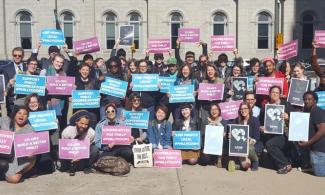How one housecleaning business became a worker co-op
With the support of the cleaning company’s founders, employees in January officially transitioned the company into the Happy Earth Cleaning Co-op — a cooperative owned and run by workers.
Employees at worker cooperatives get a say in how their business is run and a cut of the profits. As wealth disparities continue to increase in the country, some are hoping co-ops can make the economy more equitable and democratic.




